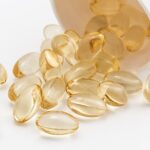How to Sustain Mental and Physical Health for a Longer Happier Life
The average life expectancy in the early 1900’s was 49 years, with only 12% of the population living to age 65. Now the average life expectancy is 80 years. With longer life expectancy, it is increasingly important to preserve brain and physical health so we can enjoy those extra years. Supplements like CoQ10 and alpha lipoic acid are part of the key to preserving mental and physical health. These antioxidants defend your cells from damage and improve cellular function and longevity.
CoQ10
CoQ10 is present in the mitochondria, where enzymes turn nutrients into energy. CoQ10 helps preserve the function of every cell by helping the cells burn energy more efficiently. When the cells are less efficient, aging occurs more rapidly. Unfortunately, as we age our bodies produce less CoQ10. Our levels peak around age 21, but drop over time, lowering by as much as sixty-five percent by the time we are 80. The cornerstone of any brain-health supplement program is coenzyme Q10 (CoQ10). Our brains require a phenomenal amount of energy for proper functioning, and CoQ10 fuels our brain cells’ mitochondria so they can provide brain power.
CoQ10 can be found in foods such as meat, fish, avocados, oysters and broccoli but the amounts are not enough to alter levels in our bodies. Therefore supplementation, as we age, is important. For most of us, supplementation with 100 to 200 mg daily is recommended. For the average athlete, 100 to 300 mg is the typical dose. Higher doses have been used for world-class athletes and for certain cardiac conditions.
Medications can cause depletion of our CoQ10 levels. Statins, B blockers and antidepressants are known to decrease the level of CoQ10. Statins, also known as HMG-CoA reductase inhibitors, block the pathway that makes cholesterol in the liver. This is the same pathway used by our bodies to make CoQ10. In fact, statin medications can lower CoQ10 levels by as much as 40%.
Another form of CoQ10 (ubiquinone) that we can use for supplementation is ubiquinol. Ubiquinol is the active form of CoQ10. Ubiquinol causes a quicker rise in CoQ 10 levels because it is absorbed more readily. Some populations have genetic enzyme alterations that make it difficult to convert CoQ10 to ubiquinol. In these situations, it is necessary to use ubiquinol for best results. Since both CoQ10 and ubiquinone are fat soluble, absorption can be improved by taking them with a small amount of olive oil, coconut oil, avocado oil or other fatty foods.
Alpha Lipoic Acid
Known as the ultimate antioxidant, alpha lipoic acid helps amplify the effects of CoQ10 and other important antioxidants. It is known to help improve the function of insulin, protect against cataract formation, reduce brain damage after strokes, decrease peripheral neuropathy and minimize aging of the skin from sun exposure.

Alpha lipoic acid is a powerful antioxidant, being 400 times stronger than vitamin E or vitamin C. It is both water and fat soluble which a unique property for an antioxidant. Alpha lipoic acid has another important benefit as well. It can recycle other common antioxidants like vitamin C and vitamin E and promote the activity of glutathione and CoQ10. It improves blood vessel structure and function and promotes antithrombotic and anti-inflammatory pathways.
Because of its powerful antioxidant properties, it acts as a potent neuroprotective agent by promoting neuronal regeneration. It also improves brain function by increasing glutathione levels. It decreases the risk of Alzheimer’s disease by decreasing inflammation and cholesterol levels. It also helps regulate glucose and insulin levels, which when elevated are known to increase the risk of Alzheimer’s.
Supplementation with alpha lipoic acid can range from 100 to 600 mg daily. It is best taken on an empty stomach, in contrast to coQ10 which is best taken with a fatty meal or oils.
Antioxidants
There are many antioxidants in addition to CoQ10 and alpha lipoic acid that will improve your health and longevity. Here are some great sources of antioxidants:
- Beans – red, pinto and black beans
- Berries – blueberries, raspberries and strawberries
- Apples
- Grapes
- Green leafy vegetables – spinach and kale
- Pecans
- Artichokes
- Fish
- Tea
- Dark chocolate
Eating a healthy balanced diet, along with good sleep and exercise is known to improve health! One step at a time, you can take charge of your health. Live long and enjoy your life by preserving your physical and mental health.

